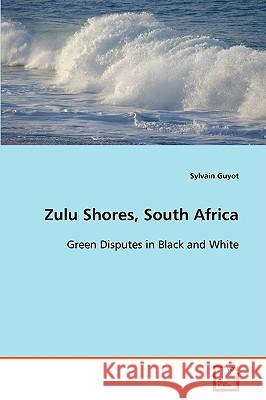Zulu Shores, South Africa » książka
Zulu Shores, South Africa
ISBN-13: 9783639094985 / Angielski / Miękka / 2008 / 104 str.
Post-apartheid South Africa is a good laboratory to study race related topics. This unique country gives us the opportunity to look at the new relationships between the different groups (Whites, Blacks, Indians and Coloureds) that were forcibly segregated during the colonial and the apartheid eras. Racism did not end with the abrogation of apartheid laws in the beginning of the 1990 s. Even if the country looks today superficially changed, evolution of mentalities and perceptions between the different groups are slow. Racism still exists but is sometimes concealed behind new politically correct statements and practices. Most of environmental legislations and philosophies during the colonial and apartheid eras were orientated towards discrimination of non-white groups, both in urban planning and protected areas making. Today what can be done to manage this legacy? Our aim is to study coastal environmental conflicts in Zululand to look at current race relations, in a particular geographical context of urban, rural and marginal areas, coveted by various political and capitalist interests at various levels, e.g. international, national and local."
Post-apartheid South Africa is a good ‘laboratory’ to study ‘race’ related topics. This unique country gives us the opportunity to look at the new relationships between the different groups (Whites, Blacks, Indians and Coloureds) that were forcibly segregated during the colonial and the apartheid eras. Racism did not end with the abrogation of apartheid laws in the beginning of the 1990’s. Even if the country looks today superficially changed, evolution of mentalities and perceptions between the different groups are slow. Racism still exists but is sometimes concealed behind new politically correct statements and practices. Most of environmental legislations and philosophies during the colonial and apartheid eras were orientated towards discrimination of non-white groups, both in urban planning and protected areas making. Today what can be done to manage this legacy? Our aim is to study coastal environmental conflicts in Zululand to look at current race relations, in a particular geographical context of urban, rural and marginal areas, coveted by various political and capitalist interests at various levels, e.g. international, national and local.











